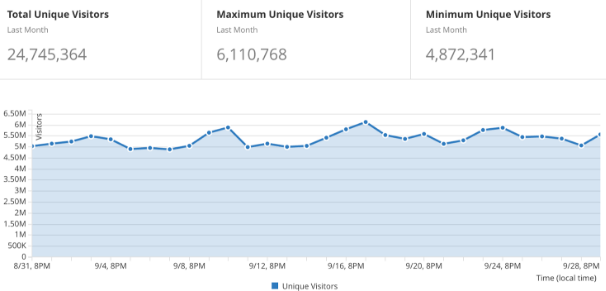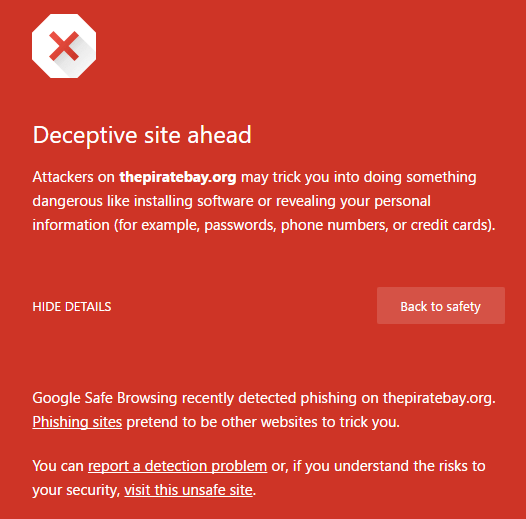Pirate Kodi Add-Ons Gain Massive Popularity
vendredi 7 octobre 2016 à 22:59 Slowly but steadily piracy has moved away from downloads to streaming. According to recent estimates, streaming services are already more popular than torrent sites, a trend that seems hard to stop.
Slowly but steadily piracy has moved away from downloads to streaming. According to recent estimates, streaming services are already more popular than torrent sites, a trend that seems hard to stop.
One factor that plays a major role in this shift is ease of use. Aside from having movie and TV-shows instantly available, it’s also easier to stream content on a regular TV, through Kodi powered applications or set-top boxes for example. While Kodi itself is a neutral platform, there are lots of add-ons available that turn in into a pirate’s heaven.
TVAddons is of the largest repositories of these plugins. The site, which also distributes FreeTelly, a custom pre-loaded version of Kodi for the PC and Mac, is the go-to destination for those who want to upgrade their Kodi experience.
TorrentFreak spoke to TVAddons’ Eleazar, who informs us that the recent growth in popularity hasn’t gone unnoticed.
While the site doesn’t keep any in-depth statistics for privacy reasons, they do know how many active Kodi users access their add-ons because of the update requests they receive. These numbers show a sharp increase.
December last year, TVAddons received 2.8 million unique calls to their update server per day, and over 13 million for the entire month. Today, these numbers have doubled to a rough average of 5.6 million per day and 24.7 million a month.
This means that every 24 hours more than five million Kodi-boxes with their add-ons are online, checking for updates.

According to Eleazar, the convenience of Kodi is one of the main drivers for this growth. Compared to many torrent and streaming sites, the clean interface is a breath of fresh air.
“It makes the streaming process far simpler and more enjoyable than visiting sketchy ad-ridden sites, or using torrent-based services like Popcorn Time that end up resulting in hundreds of thousands of people receiving legal fines,” Eleazar says.
“Anyone who uses Kodi on a regular basis considers it a life changer, bringing more entertainment to their home than they ever thought possible,” he adds.
Of course, pirates are not the only ones who’ve been watching the rise of Kodi’s pirate add-ons. The entertainment industry and law enforcement are keeping a close eye on the situation as well.
Several sellers of pre-loaded Kodi boxes have been raided, with some risking serious prison time. And just last week the UK Intellectual Property Office described pirate boxes as a growing threat.
The makers of Kodi are not happy with these developments. They clearly want to distance themselves from anything piracy related, blaming the add-on makers and distributors. TVAddons, however, doesn’t believe that it’s breaking the law.
“Technically we’re not doing anything wrong, we don’t encourage users to distribute pirated content like torrent apps do, nor do we have anything to do with the content whatsoever.”
“We’re just providing code that ‘can’ be used to scrape websites, the content of those sites has nothing to do with us,” Eleazar adds.
Nevertheless, TVAddons has taken various preventive measures to ensure the continuation of its operation, such as regularly moving their servers. In addition, they have several policies in place to preserve the privacy of add-on developers and users.
TVAddons also make it clear that they are strongly against the sale of preloaded hardware devices and paid services. They feel it “dumbs” down the community and causes users to feel that they owe them something, since they paid for it.
Thus far TVAddons hasn’t seen any public complaints from the industry that target their service. So, instead of focusing on the negative, they’re putting their efforts into improving what they have to offer – more convenient streaming tools and better add-ons.
Source: TF, for the latest info on copyright, file-sharing, torrent sites and ANONYMOUS VPN services.
 One of Russia’s most prominent anti-piracy fighters has found himself at the center of a criminal fraud investigation.
One of Russia’s most prominent anti-piracy fighters has found himself at the center of a criminal fraud investigation. The concept of whole-site blocking has been on the entertainment industries’ agenda for a decade now, after Russia’s AllofMP3 and then The Pirate Bay were blocked in Denmark. Since then, momentum has been building.
The concept of whole-site blocking has been on the entertainment industries’ agenda for a decade now, after Russia’s AllofMP3 and then The Pirate Bay were blocked in Denmark. Since then, momentum has been building. Last summer saw the launch of the latest Nintendo craze, with the augmented reality Pokémon Go game taking the world by storm.
Last summer saw the launch of the latest Nintendo craze, with the augmented reality Pokémon Go game taking the world by storm. Millions of Pirate Bay users are currently unable to access the torrent detail pages on the site without receiving a stark warning.
Millions of Pirate Bay users are currently unable to access the torrent detail pages on the site without receiving a stark warning.